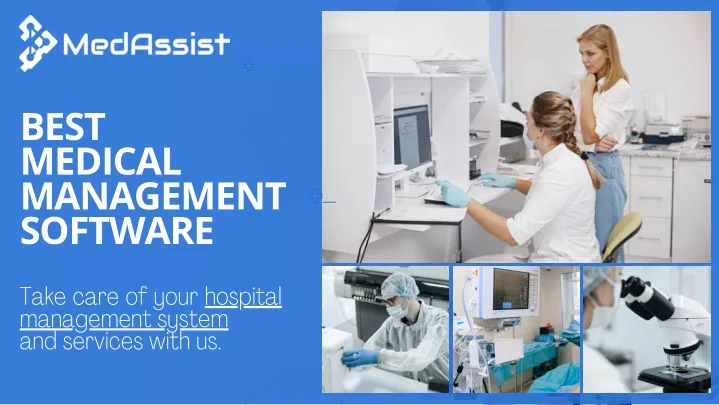In the current rapidly evolving healthcare environment, the success of medical practices hinges on effective management systems that streamline operations and improve patient care. Medical management software has emerged as a crucial tool, empowering providers to refine their processes, enhance communication, and finally deliver superior outcomes for patients. By leveraging technology, healthcare professionals can handle the challenges of patient information, billing, and scheduling with increased ease, all while maintaining a focus on quality care.
The benefits of adopting medical management software go beyond mere efficiency. These cutting-edge solutions enable providers to access up-to-date data, promote collaboration among team members, and lessen administrative burdens. As healthcare shifts toward a more integrated and data-driven approach, embracing medical management software is not just an option; it has become a requirement for providers who seek to prosper in a competitive landscape while prioritizing the health and satisfaction of their patients.

Improved Productivity
Healthcare management software greatly improves the operational efficiency of healthcare providers. By streamlining routine tasks such as appointment booking, patient registration, and billing, these systems reduce the administrative burden on staff. Providers can manage patient flow more effectively, making sure that their time is spent on delivering care rather than getting bogged down with administrative tasks.
Additionally, medical management software optimizes communication among healthcare teams. With secure messaging features and shared patient records, providers can easily work together on patient care without delays. Information is readily available, allowing for quicker decision-making and reducing the chances of errors that can arise from poor communication or missing information.
The combination of various functionalities within a unified platform further enhances efficiency. Providers can handle everything from electronic medical records to billing and compliance in a single solution. This unification not only saves time but also reduces the risk of data segregation, creating a more cohesive operational environment that ultimately leads to enhanced patient care.
Enhanced Patient Care
Clinical management software holds crucial role in enhancing patient care by streamlining communication between healthcare providers and patients. With features such as patient portals, providers can quickly share vital health information, appointment reminders, and educational resources. This continuous communication fosters a sense of engagement, helping patients feel more associated to their care teams and encouraging them to take an involved role in managing their health.
In also to enhancing communication, medical management software provides access to extensive patient data, enabling providers to make better decisions. By analyzing medical history, treatment plans, and lab results in real-time, healthcare professionals can adapt their approach to meet each patient's individual needs. This tailored care ensures that patients receive timely interventions without delay, which is important for promoting beneficial health outcomes.
Additionally, the use of medical management software facilitates better follow-up and monitoring of patients' conditions. Automated reminders and alerts help providers manage care plans and ensure that patients adhere to their recommended treatments. By actively tracking progress and adjusting care plans as needed, providers can significantly improve patient outcomes and general satisfaction with their healthcare experience.
Optimized Communication
Clear communication is vital in the medical sector, and healthcare management systems significantly enhances this dimension. By consolidating information, these platforms enable smooth interactions among clinicians, lowering the chances of confusion and errors. This promptness in communication ensures that every team member is updated on treatment, therapeutic strategies, and any changes that may arise. As a result, it cultivates a collaborative environment, in which providers can coordinate more efficiently.
Moreover, medical management software often features messaging tools that allow for rapid exchanges of information in real-time situations. This feature is essential for emergency situations where timely updates can directly influence patient outcomes. Such features not only accelerate internal communication but also elevate interactions with patients, as providers can issue reminders, updates, and educational materials swiftly through secure platforms. Thus, it elevates the complete patient experience by keeping them aware.
Furthermore, the data collected through medical management software adds to improved communication with third parties, such as insurance companies and oversight organizations. By simplifying medicloudmed.ch of necessary documents and records, these systems ease the often complex process of regulatory compliance and billing. This not only preserve time and lessen frustration but also allows providers to focus less on patient care, knowing that their paperwork are being handled efficiently.
